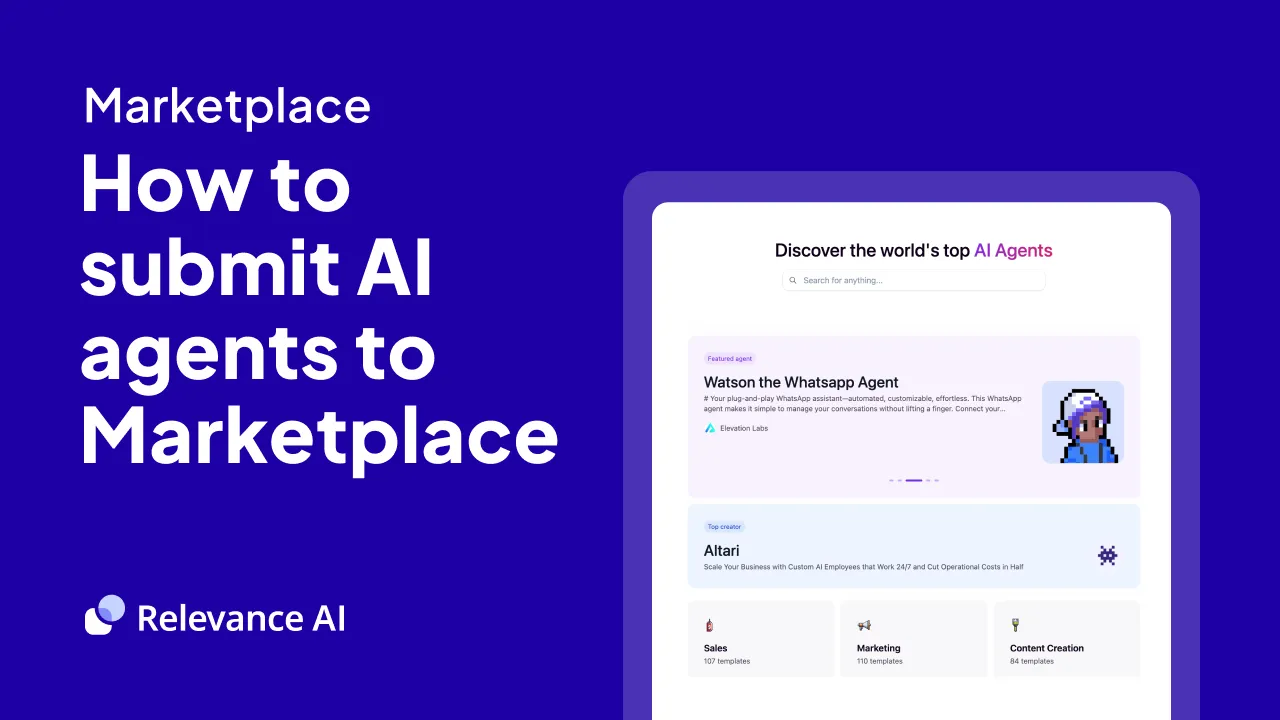
Picture this: your company just deployed 50 AI agents across sales, marketing, and customer success. They're working 24/7, processing thousands of tasks, and generating insights. But who's making sure they're actually working together? Who's monitoring their performance? Who's scaling this AI workforce strategically?

Meet AI Operations - the most critical role in business that every company will soon need.
The New Reality: Managing AI Workforces, Not Just Tools
AI Operations (AI Ops) is the emerging discipline of designing, deploying, managing, and scaling AI systems - particularly AI agents and multi-agent systems - across an organization to create measurable business impact.
You can imagine from a leadership standpoint, it's just like looking at your team and asking, 'How many people do we actually work with or employ in our company?' And maybe today you say we've got a team of 10... But in six months time, you ask that question again, maybe we now have a team of 150 (Agents) — Wei Li, AI Ops at Relevance AI
Unlike traditional software that you "set and forget," AI agents require ongoing orchestration.
They need to collaborate, adapt to changing business needs, and integrate with existing workflows.
Core Functions of AI Operations
- Building Multi-Agent Systems (MAS): AI Ops leaders design teams of agents that collaborate on complex workflows. Think of it as hiring a department, not just an individual - agents for research, analysis, reporting, and execution working together toward common objectives.
- Task Automation at Scale: While traditional automation follows rigid "if this, then that" logic, AI agents handle the nuanced, variable work that requires judgment. AI Ops ensures these agents replace or augment repetitive processes while improving workflows fundamentally.
- Data-Driven Insights Orchestration: AI agents analyze internal datasets, summarize unstructured information, and surface cross-departmental insights that were previously siloed. This means feeding agents your CRM data, meeting transcripts, support tickets, and financial reports so they can identify patterns and opportunities humans miss.
- Cross-Functional AI Enablement: AI Ops democratizes AI across every department. Instead of limiting AI to engineering teams, AI Ops embeds intelligent automation into sales, marketing, HR, finance, and operations workflows.
What Makes a Great AI Ops Leader?
You have to actually be able to say, 'Hey, this is temporary. We are building this in a way that allows us to get value today, knowing that this is going to change dramatically six to 12 months from now — Marshall Hamilton, AI Strategy at Sprout Social
A successful AI Ops leader combines systems thinking with technical knowledge, strategic vision with hands-on execution. They're part architect, part project manager, part evangelist.
The Entry Point: Soft Skills Matter Most
Here's the good news: you don't need to be an engineer to start in AI Ops. The most critical skills are actually the soft skills that many operations professionals already possess:
- Communication & Evangelism: Explaining why AI initiatives matter and getting buy-in across departments - building internal playbooks, performance evaluations and documenting the entire process of implementation can greatly help to showcase value here.
- Systems & Process Thinking: Understanding how work flows through an organization (to design multi-agent systems) and identifying optimization opportunities for AI implementation
- Problem-Solving: Breaking down complex business challenges into manageable components, for example: cost-performance trade-offs (every agent task costs tokens/credits and compute power), and using business data to drive better decisions
- Adaptability: Embracing rapid change and continuous learning in a fast-evolving field
The Growth Path: Technical Skills You Can Learn
The most effective AI Ops leaders combine technical capabilities with operational excellence:
.webp)
The Evolution of AI Ops: From Individual Contributors to Strategic Function
AI Operations is following a similar trajectory to data analytics over the past decade:
Stage 1: Individual Contributors - Companies hire their first AI Ops person to solve specific departmental problems - often someone with traditional ops experience who learns AI tools.
Stage 2: Specialized Roles - As AI workforces grow, organizations need both technical builders (who design and implement agent systems) and strategic orchestrators (who manage performance, ensure alignment, and drive adoption).
Stage 3: Dedicated Department - Eventually, companies establish dedicated AI Ops teams with a Head of [Department] AI Operations, similar to how data teams evolved from individual analysts to strategic business functions.
The compound effect happens when these AI Ops teams ensure that agents built in sales can share insights with marketing agents, which inform product development agents, creating organizational intelligence that's far greater than the sum of its parts.
Two Types of AI Ops Emerging
Department-Level AI Ops: Specialists embedded within specific functions (Sales, Marketing, HR) who understand domain-specific processes and can build targeted agentic solutions.
Enterprise AI Ops: Strategic roles that orchestrate AI initiatives across departments, ensuring agents and insights compound rather than operate in silos. These leaders build the infrastructure and standards that enable department-level AI Ops to scale.
Most organizations start with department-level AI Ops, then evolve toward enterprise coordination as their AI workforce grows.
The Strategy to Evangelize AI Ops Within Your Organization
Getting organizational buy-in for AI Ops can be challenging since the role is still emerging. Here's how successful AI Ops leaders build internal support:
Phase 1: Demonstrate Value
- Quick Wins: Build agents that solve immediate, visible problems
- Success Metrics: Track and share measurable impact (time saved, accuracy improved, costs reduced)
- Documentation: Create clear guides that enable others to replicate your success
Phase 2: Scale Adoption
- Training Programs: Teach teams to use AI tools effectively through hands-on workshops
- Template Libraries: Share proven agent configurations and best practices
- Performance Monitoring: Establish KPIs and reporting systems for AI initiatives
Phase 3: Strategic Integration
- Executive Storytelling: Present AI Ops impact in business terms that leadership values
- Cross-Department Collaboration: Ensure AI initiatives reinforce rather than compete with each other
- Long-term Planning: Build AI Ops into organizational strategy and resource allocation
Why AI Ops Matters Now
Traditional operations focused on efficiency: making existing processes faster and cheaper. AI Ops focuses on effectiveness: making processes more intelligent and adaptive.
This shift is happening whether companies plan for it or not. Organizations that formalize AI Ops functions will have coordinated AI workforces creating compound value. Those that don't will have scattered AI experiments that never scale - duplicated efforts, conflicting agent behaviors, and missed opportunities for cross-functional insights.
The question isn't whether your company needs AI Operations. The question is whether you'll build this capability intentionally or discover you need it when your AI initiatives start working against each other.
The Bottom Line
AI Operations represents the evolution from treating AI as a tool to managing it as a workforce. Just as DevOps transformed how we build and deploy software, AI Ops will transform how we design and scale intelligent automation.
The companies that master AI Ops first will be fundamentally more adaptive, insightful, and competitive.
The AI workforce is coming. The only question is: who will manage it?

Ready to build your AI Operations capabilities? Relevance AI is the platform of choice for AI Ops leaders who need the control, customization, and integration capabilities to manage enterprise AI workforces at scale.
















